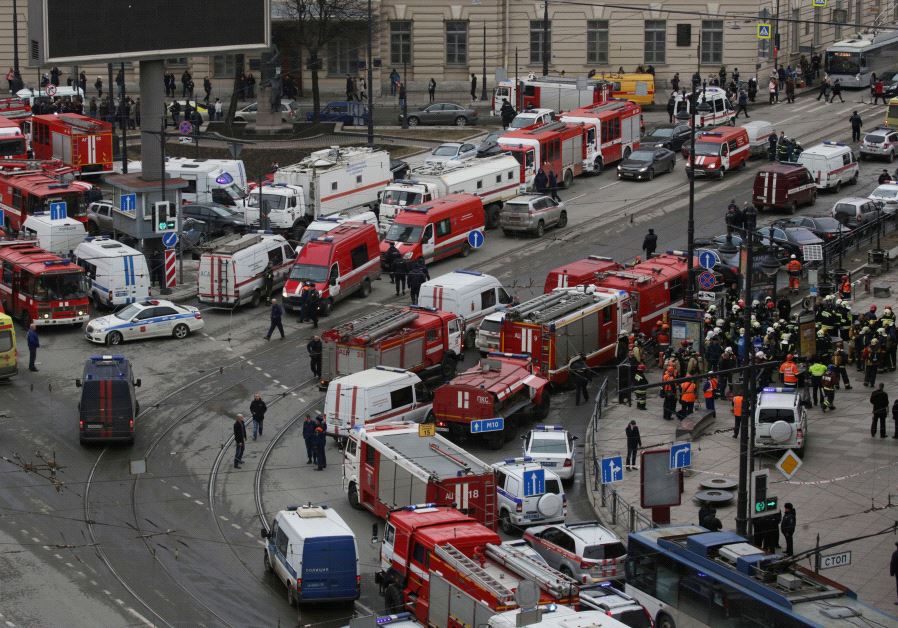Russian media: Search warrants issued against two suspects in deadly metro blast
Dozens reportedly injured in explosion; Putin: Russia investigating all potential causes, including terrorism.
 Bomb blast kills 10 in St Petersburg, RussiaByJPOST.COM STAFF, REUTERSUpdated:
Bomb blast kills 10 in St Petersburg, RussiaByJPOST.COM STAFF, REUTERSUpdated: